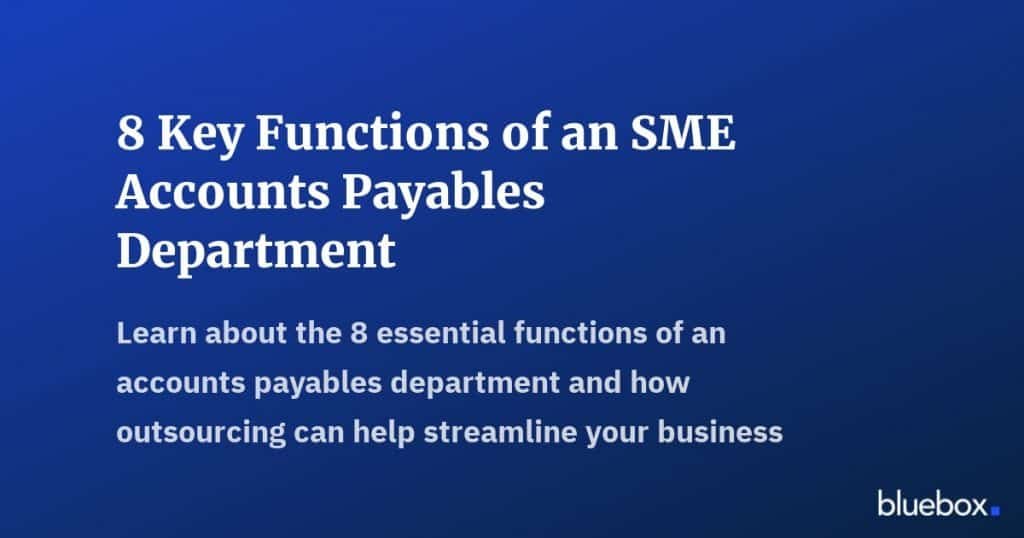Accounts Payable (AP) is an essential function of any business, where the focus lies on managing the company’s expenditures and maintaining good vendor relationships. Small businesses in Singapore can benefit greatly from effective AP management as it improves financial efficiency, reduces costs and enhances cash management. In this blog, we will discuss the eight key elements that small businesses in Singapore need to know about Accounts Payable management and why outsourcing this function could be useful.
Accounts Payable: What is it?
AP is the process of managing a company’s bills and invoices, including recording, processing and paying them. The invoices could be for anything from office supplies to rent, and it’s the responsibility of an AP specialist to ensure that the payments are accurately processed.
1. Invoice Processing and Approval
This involves receiving invoices from vendors, matching them with purchase orders, verifying the accuracy of the invoice, and gaining approval from the relevant authorities. This step is essential to prevent fraudulent claims and to ensure that payments match up with the goods or services received.
2. Payment Processing and Authorization
Once the invoice has been approved, the next step involves processing the payment, which could be electronic or through an actual check. The payment should be authorized within the limits set by the company’s budget, and it’s the responsibility of the AP specialist to ensure that there are no errors in payment or double payment.
3. Vendor Management and Communication
Maintaining good vendor relationships is crucial for any business. AP involves keeping in touch with vendors, negotiating payment terms, resolving any issues related to bills, and ensuring timely payments.
4. Expense Reporting and Reimbursement
AP also involves managing employee expenses, computing reimbursements accurately, and ensuring that all applicable expenses are reimbursed within the company’s policies and guidelines.
5. Cash Management and Forecasting
AP plays a crucial role in managing cash flow and forecasting future expenses. Managing payment terms, payment schedules, and cash balances are some essential components of AP management.
6. Accounts Payable Aging Analysis
This involves analyzing the AP aging report, which helps in tracking how long payments have been outstanding and identifying any areas in which payments are being delayed.
7. Dispute Resolution and Negotiation
AP specialists must be skilled in dispute resolution and negotiation. They should have the ability to communicate effectively with vendors and resolve issues and disputes quickly.
8. Purchase Order Management
AP management also involves managing purchase orders, which involves creating, issuing, and tracking POs. By managing POs effectively, businesses can account for all purchasing activity, track spending and ensure that it aligns with the budget.
Why Outsource Accounts Payables Management
It’s no secret that running a small business can be a daunting task. And when it comes to managing your finances, things can quickly become overwhelming. That’s why outsourcing your Accounts Payable function can be a game-changer.
By letting an expert team handle your payables, you can focus on what you do best – growing your business. Outsourcing also ensures that your financial records are accurate and up-to-date, giving you a clear picture of your cash flow and expenses.
And with a team of experienced professionals handling your payables, you can rest easy knowing that everything is being taken care of in a timely and efficient manner. Plus, outsourcing can save you money in the long run by reducing the need for in-house staff and equipment.
So, if you’re a small business owner in Singapore looking to streamline your financial operations and take your business to the next level, outsourcing your Accounts Payable function is the way to go.
Conclusion
Effective AP management is critical for small businesses in Singapore. By understanding the nine key elements of AP management, companies can improve their financial efficiency, reduce costs, and enhance cash management. Outsourcing AP functions can be a viable option as it provides access to expertise and professional services, which can help small businesses to focus on their core competencies while ensuring that their AP functions are managed effectively.
